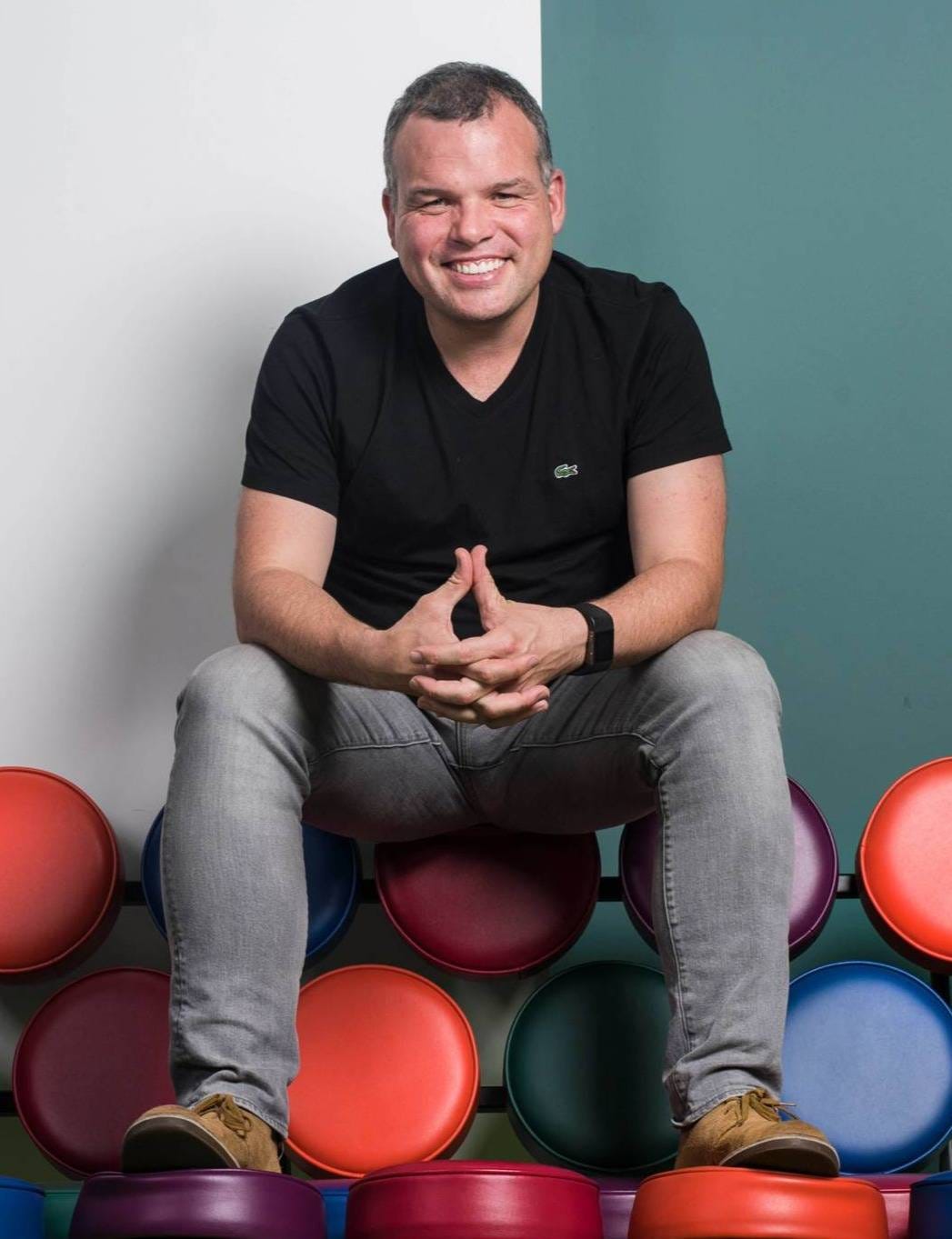🚨 Sunday Signal: iPhone’s Epic Launch, Digital Cages, and Cricket’s Secret Weapon! 🏏
Essential Insights on Tech’s Impact, Leadership Lessons, and Navigating Human Potential Issue #11 – Sunday 29 June 2025
⏱️ 7 min read
The Bottom Line Up Front
This week’s Signal reflects on the profound dual legacy of revolutionary innovations. We celebrate the incredible global impact of the iPhone since its 2007 launch, critically examine the unintended consequences of pervasive digital surveillance, and draw essential lessons from cricket's Bazball about fostering empowering, innovative teams. True progress demands both bold vision and responsible oversight.
📱 On This Day in 2007: Apple's iPhone Changed Everything
Seventeen years ago today, Steve Jobs stepped onto the Macworld stage and declared, “Today Apple is going to reinvent the phone.” At the time, it sounded audacious; even arrogant, but it proved entirely prophetic.
Jobs introduced the iPhone as “not three separate devices…an iPod, a phone, an Internet communicator” bundled into one. Beneath the slick demo lay years of secretive, intense effort known as Project Purple. Apple developers worked in isolated, secure labs, even staging prototype calls disguised as iPods to prevent leaks.
The demo itself was a masterful act. Behind the scenes, engineers worked furiously, rigging fragile prototypes to display full signal bars and perform seamlessly. The software was so unstable that Jobs had to follow an exact sequence of demo steps meticulously; deviating slightly could cause the system to crash. Apple engineers even hard-coded the phone's signal bars to always display full strength, creating an illusion of perfection. Just six months prior to the June launch, Apple had only unstable prototypes, prompting a frantic push to resolve antenna, glass, and software issues under immense pressure.
The iPhone launch sent shockwaves through the industry. While Bill Gates spoke of a “digital decade” centred on PCs, Jobs unveiled a sleek, handheld computer running OS X, a clear signal of the post-PC era.
A Revolution in Numbers:
Over 2.5 billion iPhones sold to date.
Apple’s revenues reached US$391 billion in 2023, with nearly half from iPhone sales (around US$200 billion).
The App Store, introduced alongside the iPhone, generated over US$1.3 trillion in billings.
The iPhone reshaped entire industries and daily routines. Ride-hailing apps transformed cities, financial services became mobile-first, photography became universal, news instantaneous, and social movements gained unprecedented reach.
The iPhone's launch is akin to Johannes Gutenberg’s printing press in the 15th century. Just as Gutenberg democratised knowledge, the iPhone democratised information access, reshaping global communication and culture.
Personal Reflection:
As an early adopter and Silicon Valley enthusiast, I was captivated by the iPhone but initially frustrated by Apple's closed ecosystem. I jailbroke my first iPhone to fully customise it—a minor rebellion against Apple's walled garden. Though I've since accepted those constraints, my desire for openness remains strong.
Seventeen years later, the ripple effects of that pivotal day in 2007 remain significant. Apple's market value surpasses many nations, entire industries have been reshaped, and our social and political landscapes fundamentally transformed. Whether admired or criticised, the iPhone fulfilled Jobs's audacious promise: a simple black rectangle truly changed the world.
Yet, alongside these transformative benefits emerged an unintended consequence: the rise of pervasive digital surveillance and targeted marketing, fundamentally altering our relationship with technology and personal privacy.
📵 From Chicken Coops to Digital Cages: The Downside of the Smartphone Revolution
Adapted from my latest Yorkshire Post column.
The transformative impact of the iPhone brought enormous benefits, but it also enabled a dramatic expansion of digital surveillance, altering our personal interactions profoundly. A recent family experience illustrated this sharply: we considered keeping chickens, and a quick online search turned eerie. Within hours, our Instagram feeds transformed from holiday snaps to endless adverts for chicken coops. (Since writing this article, we now have six chickens, including Dennis, pictured above.)
After three decades in cutting-edge technology, even I found this targeted marketing unsettling. It’s impossible to ignore parallels with Big Tobacco, an industry built on dependency disguised as choice and freedom. Today, social media giants use behavioural science to engineer platforms for compulsion rather than connection.
According to Ofcom’s 2024 report, over a third of 5-7-year-olds regularly use social media platforms, coinciding with critical periods of neural development. The consequences are significant: the UK's Office for National Statistics reports 48% of teenagers experience negative impacts from social media, with higher anxiety and depression levels among teenage girls.
The response has begun. In 2024, Australia proposed banning social media access for under-16s, highlighting the urgency of reclaiming childhood from commercial exploitation. If social media is the new smoking, our response must match the threat: clear guidance for parents, sensible boundaries in schools, and thoughtful regulation from policymakers.
We must ensure technologies meant to connect us don't trap our children in digital cages. Our responsibility isn't just limiting screen time; it's safeguarding how we raise the next generation.
🏏 Bazball: What Cricket Can Teach Us About Building Great Teams
Adapted from my latest Yorkshire Post column.
Earlier this week, England completed one of Test cricket's greatest run chases at Headingley, playing with boldness and flair characteristic of Bazball, the radical approach conceived by coach Brendon McCullum and captain Ben Stokes. At its heart, Bazball is about removing the fear of failure, encouraging players to take risks and express themselves fully on the field.
The transformation under Bazball isn't just about improved performance; it's about redefining how the game is played. Rather than defensive strategies and cautious approaches, Bazball encourages proactive and aggressive play. McCullum and Stokes believe anxiety inhibits potential, so they removed that barrier, telling players: "You are not your mistakes. Go and play."
This approach offers a powerful lesson for organisational culture. Many companies pay lip service to "high-performance culture," but default to caution, control, and excessive oversight. This stifles innovation and creativity.
Steve Jobs famously stated, “It doesn’t make sense to hire smart people and tell them what to do. We hire smart people so they can tell us what to do.” At Apple, talented individuals were empowered to challenge assumptions, take initiative, and innovate freely. Jobs also said, “The culture is your brand.” The internal environment inevitably shapes how your organisation interacts with the world.
Years ago, I implemented unlimited paid holidays in my company, initially met with scepticism. Yet it created a self-regulating environment of high trust and accountability. Managers became selective in hiring, wanting team members who could thrive within this freedom.
Critics argue Bazball is reckless, pointing to the occasional losses it incurs. However, they're missing the larger point. The philosophy isn't about guaranteed success but about creating conditions where extraordinary performance becomes possible.
Great teams, in business or sport, flourish when people feel trusted, empowered, and unafraid to make mistakes. To build teams that perform like champions, leaders must remove fear, hire talent they trust implicitly, and then step aside.
Bazball reminds us that true greatness requires courage; courage to empower others, courage to innovate, and courage to embrace uncertainty.
🚀 Final Thought
Reflecting on Innovation’s Dual Legacy
Seventeen years ago, the iPhone's launch transformed our world, bringing unprecedented connectivity and democratised information access. Yet, alongside these remarkable advancements emerged critical challenges, such as digital surveillance and addictive social media practices. Today, as we celebrate innovation’s achievements, we must also confront its unintended consequences. The true test of visionary leadership lies not only in creating groundbreaking technologies but also in responsibly managing their long-term impacts, ensuring they enrich human potential without compromising our freedom and well-being.
Until next Sunday,
David
David Richards MBE is a technology entrepreneur, educator, and commentator. The Sunday Signal offers weekly insights at the intersection of technology, society, and human potential.
© 2025 David Richards. All rights reserved.




